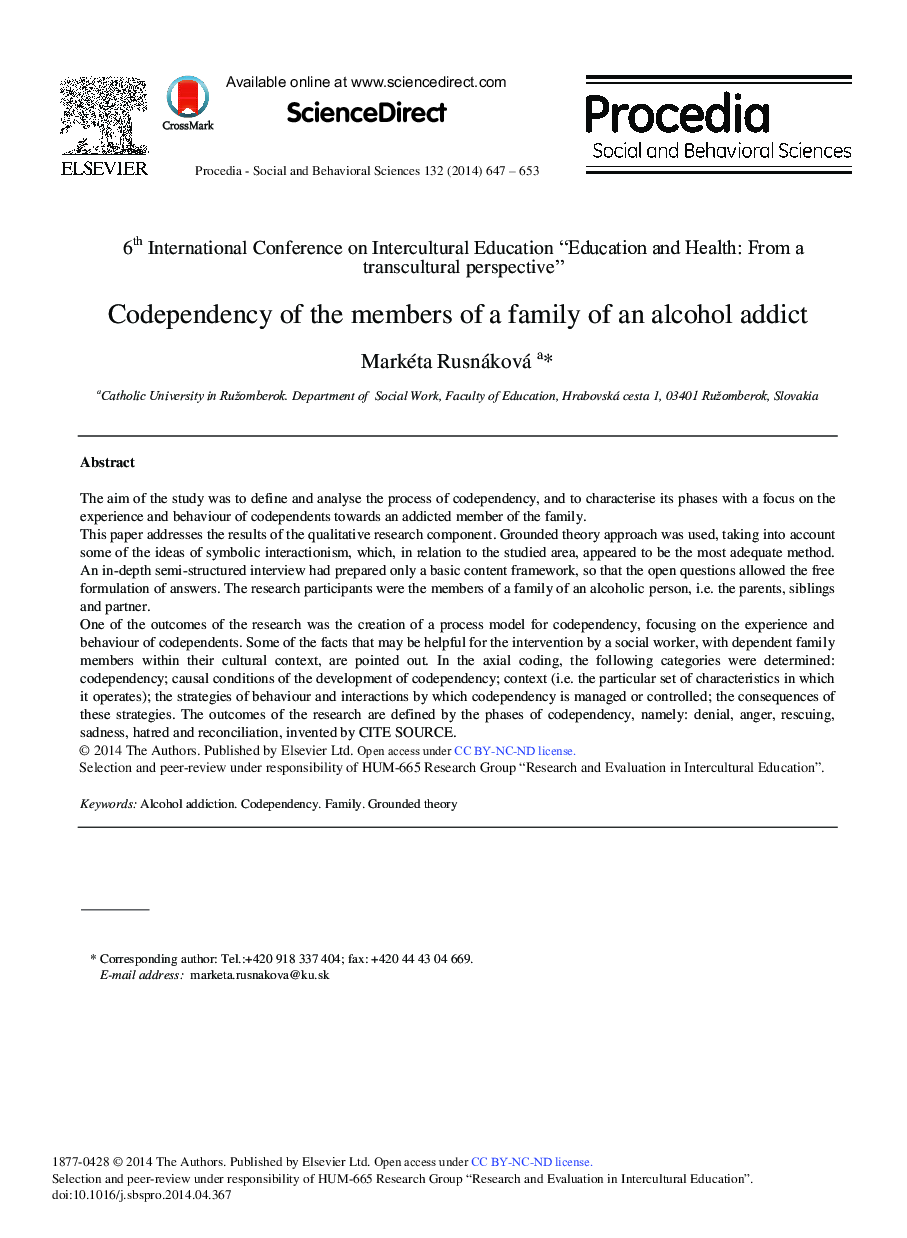| Article ID | Journal | Published Year | Pages | File Type |
|---|---|---|---|---|
| 1114712 | Procedia - Social and Behavioral Sciences | 2014 | 7 Pages |
The aim of the study was to define and analyse the process of codependency, and to characterise its phases with a focus on the experience and behaviour of codependents towards an addicted member of the family.This paper addresses the results of the qualitative research component. Grounded theory approach was used, taking into account some of the ideas of symbolic interactionism, which, in relation to the studied area, appeared to be the most adequate method. An in-depth semi-structured interview had prepared only a basic content framework, so that the open questions allowed the free formulation of answers. The research participants were the members of a family of an alcoholic person, i.e. the parents, siblings and partner.One of the outcomes of the research was the creation of a process model for codependency, focusing on the experience and behaviour of codependents. Some of the facts that may be helpful for the intervention by a social worker, with dependent family members within their cultural context, are pointed out. In the axial coding, the following categories were determined: codependency; causal conditions of the development of codependency; context (i.e. the particular set of characteristics in which it operates); the strategies of behaviour and interactions by which codependency is managed or controlled; the consequences of these strategies. The outcomes of the research are defined by the phases of codependency, namely: denial, anger, rescuing, sadness, hatred and reconciliation, invented by CITE SOURCE.
